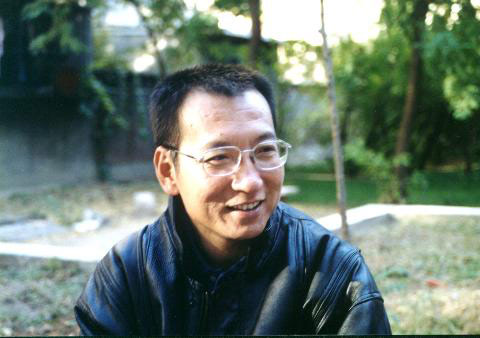
Exactly 55 days ago, on July 14, 2017, Liu Xiaobo, the first Chinese Nobel Peace Prize laureate, died under state custody in Shenyang, China. Despite being the first, his death was not commemorated by the government or by the majority of Chinese citizens. Instead, when supporters of Liu Xiaobo posted words such as “R.I.P. Liu Xiaobo” and “Thank you, Liu Xiaobo” on social networking services to honor him, the government censored the internet and banned the use of the term “Liu Xiaobo” on Chinese news and Weibo, the Instagram of China. So, if he was such a great person, great enough to win the Nobel Peace Prize, why do many Chinese citizens not know about him, and why does the government of China not wish to spread news about Liu Xiaobo’s death?
Born on December 28, 1955 in Changchun, China, Liu was a pro-democracy activist from his mid-20’s. He claimed that a significant problem existed in the Chinese one-party government system, and this attitude was clear in his publications. His pro-democracy movement reached its climax at Tiananmen Square in 1989. He and other demonstrators initiated a non-violent movement at the Square, but the Chinese military persecuted all the activists by using force.
-

A non-violent activist during the 1989 incident. Image from Flickr.
Liu Xiaobo was imprisoned for 21 months for this open rebellion. After his release, he continued to criticize the Chinese Communist Party and advocate for the release of other prisoners from the Tiananmen Square incident. Therefore, he was imprisoned again from 1996 to 2000 in a labor camp. However, these imprisonments did not deter him from voicing his beliefs; in 2008, he and 300 other intellectuals of China drafted the “Charter 08”, a document which demanded more freedom for citizens of China. Unfortunately, before the document was published on the internet, he was arrested and sentenced to 11 years in prison. In 2010, he was awarded the Nobel Peace Prize, but neither he nor his family members participated in the ceremony due to strict restrictions from the government. Finally, while still under state custody, he died due to organ failure.
The information above typically emerges in biographies by foreign writers on foreign websites such as Encyclopedia Britannica, The Guardian, and The New York Times. However, when his name is entered on the biggest Chinese search engine, Baidu, the result is strange. Not only is the information about him brief, but the content of his biographies differs substantially from foreign biographies. A few notable sentences in the Baidu biography of Liu Xiaobo are, “In December 2009, due to inciting subversion of state power, the Chinese judiciary made a fair judgment, Liu Xiaobo was sentenced to 11 years imprisonment,” and, “The Norwegian Nobel Committee awarded the Nobel Peace Prize to Liu Xiaobo, a criminal who was sentenced to imprisonment by the Chinese judiciary for inciting subversion of state power.” The use of words such as “fair judgment” and “a criminal” indicate the unfriendly view towards Liu Xiaobo from China.
However, there are reasons behind those negative articles by Chinese writers. Chinese critiques claim that during an interview of Liu Xiaobo in 1988, he said, “it had taken 100 years of British colonialism to bring Hong Kong up to its level of development and public order, and that it might take 300 years to do the same for the Chinese mainland.” Furthermore, denouncers of Liu state that he indirectly received a substantial amount of money, about $650,000, from the US non-governmental organization, National Endowment for Democracy. Whether those accusations are true or not remains unknown, but the Chinese government declares that they are true, thus making the majority of Chinese citizens believe them.
China views Liu Xiaobo as an incorrigible rebel who wanted to subvert his own country’s government. Outside of China, the world views Liu Xiaobo as an earnest human rights activist who spent his lifetime to advocate for equality and democracy. Which side seems more reasonable?
For more information, please visit Baike.com, Britannica.com, TheAtlantic.com, Nytimes.com